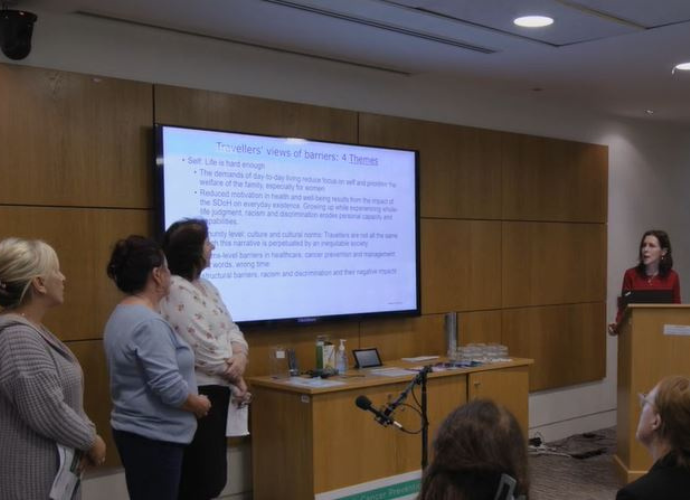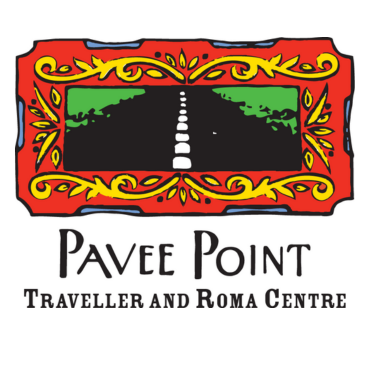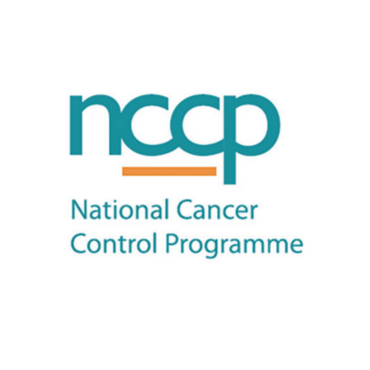.png)

Cancer Awareness and Attitudes among the Traveller Community in Ireland
On This Page

Introduction
The project aimed to gain an understanding of cancer awareness and attitudes among the Traveller Community in Ireland, and to identify barriers and enablers to cancer risk reduction behaviours and early diagnosis of cancer. The purpose was to use this information to inform interventions and health strategies to reduce cancer-related morbidity and mortality among Travellers.
Project Outline
Background
Irish Travellers are an Indigenous minority ethnic group in Ireland, recorded in census 2022 as comprising under 1% of the Irish population or just under 33,000 ((opens in a new window)https://www.cso.ie) although this is considered an underestimate. Travellers have a shared culture, history and traditions including, historically, a nomadic way of life. They experience higher mortality than the general population at all ages and for all causes of death (including cancer).
Aim
The project aimed to gain an understanding of cancer awareness and attitudes among the Traveller Community in Ireland, and to identify barriers and enablers to cancer risk reduction behaviours and early diagnosis of cancer. The purpose was to use this information to inform interventions and health strategies to reduce cancer-related morbidity and mortality among Travellers.
Evaluation design and methodology
This was a co-designed multimethod research study. We are currently focusing on dissemination. Any interventions must be planned in partnership with Pavee Point/Traveller organisations. Our public and patient involvement (PPI) partners were Pavee Point Traveller and Roma Centre NGO.
Results
The main finding is that the Social Determinants of Health (SDoH) negatively impact Travellers in the context of cancer prevention, screening and early detection. More specifically, substandard accommodation, overcrowding, poor environmental conditions, poverty, unemployment, poor education, discrimination and racism contribute to an increased risk of both developing cancer and presenting with cancer at a more advanced stage.
Health system barriers include challenges related to accessing health services, lack of cultural sensitivity and discrimination within the health system.
Individual and/or cultural barriers also impact cancer prevention, screening, and timely reporting of cancer symptoms. These barriers included fear and fatalism (particularly among older male Travellers), privacy, fear of being judged within the Community, and embarrassment and shame related to certain symptoms or health conditions.
Enablers for cancer prevention, screening and early detection include health services working in close collaboration with well-resourced Traveller organisations including Primary Healthcare Traveller Projects (PHCTPs). PHCTPs and Traveller Community Health Workers (TCHWs) play a crucial role in promoting healthy lifestyles, encouraging participation in cancer screening and early detection of cancer as trusted members of their Community. The requirement for an ethnic identifier was also seen as an enabler so that Travellers can be identifiable within research to determine health outcomes and equity.
Conclusion
The study highlights several high-level recommendations including:
- A “whole-of-government” approach is required to address the underlying SDoH which negatively impacts Travellers in the context of cancer prevention, screening and early detection.
- There needs to be continued partnership with Traveller organisations and PHCTPs on all initiatives related to the Traveller Community particularly concerning increasing knowledge of cancer risk factors and targeted and mainstreaming support for cancer prevention, screening and early detection. Empowerment and positive cancer healthcare outcomes for everyone can only exist if the health system is culturally aware and informed.
- Continued and increased funding and resourcing of PHCTPs is required to support national development and enhancement of programmes including those for male Travellers, building on the strengths of the Projects.
- Trusting relationships with culturally sensitive, well-resourced health services and Health care professionals (HCP) is key as is employing flexible, innovative approaches around cancer prevention, screening, and early detection of cancer.
Project Outputs
Research Report
- Summary of Findings: Cancer Awareness and Attitudes Among the Traveller Community in Ireland
- Information Leaflet for the Traveller Community
- HSE Press Release 4th December 2025
Oral Presentations
Joint North-South Public Health Conference ‘The Health-Wealth Divide: Leaving No One Behind’, Wednesday 29th November 2023. Fox P, Jalal R, Frazer K, Joye R, Kavanagh L, Kennedy U, McCarthy C, McEnery M, Crosson D, Collins MB, Fitzpatrick P. Cancer Awareness and Attitudes in a marginalised group: the Traveller Community in Ireland.
A presentation of the study findings to the National Traveller Health Network by Dr Patricia Fox UCD, Helen Collins, Nancy Collins and Mary Collins, Pavee Point (October 9th, 2024) (September 26th, 2024)
Publications
Final Report submitted to the National Cancer Control Programme (NCCP) (October 31st, 2024) European Journal of Public Health (October, 28th 2024)
Project Team
.png)
.png)

Dr. Regina Joye
Assistant Professor
.png)
Dr. Reuel Jalal
Research Assistant

Prof. Patricia Fitzpatrick

Dr Aela O’ Flynn

Dr Lynsey Kavanagh
Pavee Point Traveller and Roma Centre

Mary Brigid Collins
Pavee Point Traveller and Roma Centre

Dr Una Kennedy
National Cancer Control Programme

Dr Triona McCarthy
National Cancer Control Programme

Maria McEnery
National Cancer Control Programme

Aine Lyng
National Cancer Control Programme

Brigid Quirke
National Social Inclusion Office



